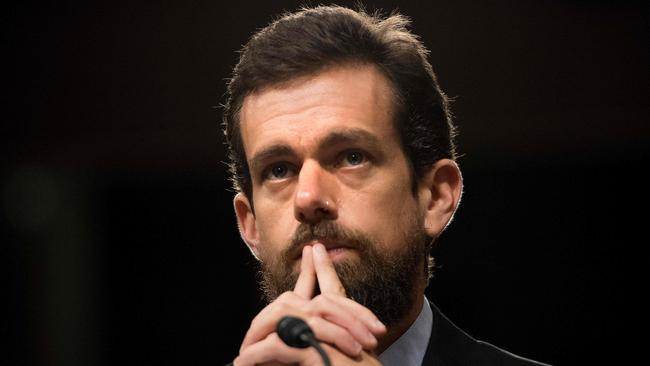What Twitter’s political ban means for democracy
Twitter’s bold step away from the political debate could help and hinder leaders around the world. But is that a good thing, and should we be worried, asks Andrew Hughes explains.
Last week, social media giant Twitter announced that it was banning all political advertising on its platform.
“We believe political message reach should be earned, not bought,” Twitter’s co-founder and CEO Jack Dorsey announced on Wednesday.
“While internet advertising is incredibly powerful and very effective for commercial advertisers, that power brings significant risks to politics, where it can be used to influence votes to affect the lives of millions. Internet political ads present entirely new challenges to civic discourse: machine learning-based optimization of messaging and micro-targeting, unchecked misleading information, and deep fakes. All at increasing velocity, sophistication, and overwhelming scale,” he continued.
Big deal, right? Sadly, not quite. But it is a start in the right direction.
RELATED: Twitter to ban political advertising
Advertising and communications in the digital age has changed much of how political campaigns are run. It was only a decade ago that it seemed amazing to be able to make a 30 second TV commercial in only a few days. Now people with smart devices can make them in under an hour, which is invariably what happened during the 2019 federal election.

A simple morning gaffe made by then Labor leader Bill Shorten became a meme, video, and trending piece of shareable content across multiple platforms within an hour of occurring. The source became the re-poster, rather than the political brand that most people have little engagement with or liking for.
In addition to this, political messages can be viewed and reach their intended target audience within hours. This new speed of messaging in modern campaigns is one of the very good reasons that minor parties struggle; they simply cannot compete with larger campaigns who have content factories running 24/7 during elections. It’s also why so many political parties love advertising on social media: speed, effectiveness at hitting target markets, and the ease of sharing and posting content.
RELATED: Facebook ruling risks everything we hold dear
Social media applications and sites (Twitter included) are all privately owned and like any business, they need to make money to survive. But the dichotomy when it comes to politics and advertising is that social media has made freedom of speech more about paid speech. If you have the money, ultimately, your speech is worth far more than someone who is paying nothing. Influence, views and engagement are now paid for, not earnt as it was in the days of politics past.

This means that if a politician or party pays enough, issues they want you to see and deem to be important is going to happen. National interests or importance have nothing to do with it.
This is the good part of the ban Twitter has introduced because it goes some way to stopping those with the deepest pockets having the loudest voice.
But there are still ways to game influence and debates – from buying followers, to manipulating hashtags, and misleading or outright false content being shared with followers that dominates discussions for days, weeks and sometimes months.
RELATED: Facebook is not the victim, it’s the perpetrator in a privacy nightmare
In some ways, this is a smart tactic because a purchased narrative then has the power to smother any attempt by opposition parties or candidates trying to swing discussion back to a an issue they’d prefer to be grabbing headlines.
With governments reluctant to bring regulations into this space, either because they like to take advantage of the loopholes when they are up for re-election or because any attempt to regulate cyber space so far has proved to be as useless as flyscreens on submarines, it is going to be up to social media brands to take steps to self-regulate.

But with the UK and the US heading for elections within the next 12 months, Facebook is tipped to rake in at least $1.44 billion from political advertising alone. Which means Twitter is likely to be the lone social media platform taking any real action.
It can be well argued that one of the biggest impacts of social media on politics has been the move from winning votes to winning influence. Democracy has become a brand and power in government and society is now more effectively influenced and changed through social media than anything else.
Just look at the power and impact one tweet from US President Donald Trump can have. Thanks to his love of the medium we’ve seen him support conspiracy theories, fire senior members of staff in real time and even praise foreign dictators. Twitter’s ban on political advertising will not stop any of this, but it will start to remove the ability to influence election outcomes with money more than narrative.
This is just the first step in starting to clean up the wild frontier of how political organisations use social media. The bigger question now though, is if other social media brands plan to follow suit?
Without that guarantee anyone with the right amount of money will be able to achieve the right amount of influence on how policy is created and implemented.
And that’s something to tweet about.
Andrew Hughes is a lecturer in marketing at ANU.
Originally published as What Twitter’s political ban means for democracy
